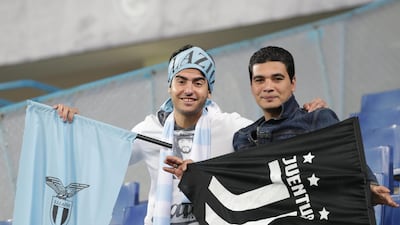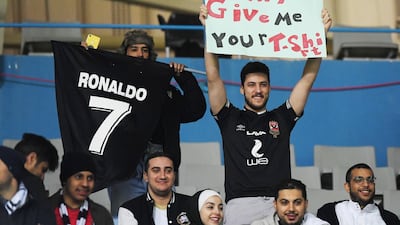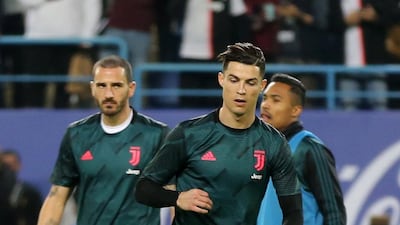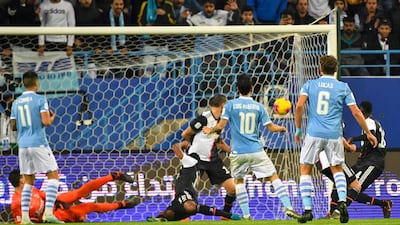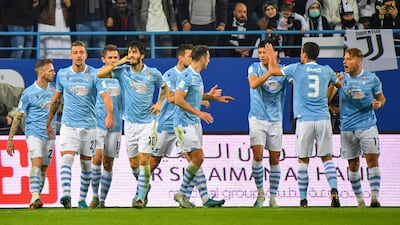So, the first big signing of the new decade in Serie A will be Zlatan Ibrahimovic. Anybody sensing some deja vu, or suspecting Italian football remains unusually susceptible to nostalgia is forgiven.
This time 10 years ago, the AC Milan about to reunite with Ibrahimovic were signing David Beckham - for Beckham's second spell with the club.
Beckham was 34 at the time. Ibrahimovic is 38, and though Italian football will certainly be powerfully illuminated by the return of the great Swedish lighthouse, there are tasks too great even for ‘Ibracadabra’s’ enduring magic.
Milan, whom he helped guide to their last league title in 2011, go into 2020 in the bottom half of the table. They were barred from European football this season because of financial fair-play infringements and they are taking orders from their third different manager, Stefano Pioli, in seven months.
Milan's status apart, Ibrahimovic will recognise many aspects of the landscape. It has been a year of homecomings. In August, Mario Balotelli returned to Brescia, the town where he grew up, and though some Super Mario goals have been duly delivered for a struggling club, he found that after three years away, the racist abuse from grandstands remains a part of the sport in Italy, undiminished, perhaps worsened, in its regularity. "Wake up, you imbeciles," Balotelli told his abusers.
Back home, too, are a trio of ambassadors for Italy’s high standards in coaching, armed with the medals they earned abroad. Claudio Ranieri, a Premier League champion with Leicester City in 2016, came back briefly to Roma and then to Sampdoria. Antonio Conte, champion of England in 2017 with Chelsea, took over at Inter Milan, while Maurizio Sarri, who won his first major trophy, the 2019 Europa League, at Chelsea’s helm, was entrusted with retaining Juventus’s iron grip on the league, a grip that began way back in 2012 under Conte.
That backstory has helped make the 2019-20 title race as captivating as any over the last decade. Conte’s Inter and Sarri’s Juve, built around Cristiano Ronaldo, end the year neck-and-neck at the top, on 42 points each. And Juve, champions the last eight years, look genuinely catchable.
They are especially beatable if you are Lazio, who defeated Juve in the Italian Super Cup in Riyadh 3-1 last week, barely two weeks after the same Lazio had inflicted a first league defeat on the champions by the same scoreline.
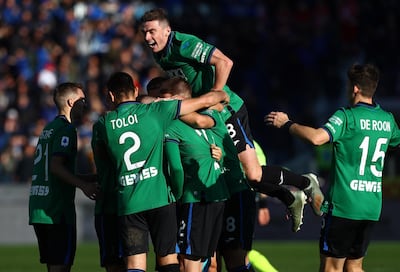
Lazio’s stunning end of year form puts them, at six points behind Juve and Inter but with a match in hand, in the title-race. Centre-forward Ciro Immobile is Serie A’s leading marksmen, with 17 goals from 16 matches, and they are more potent in attack than either the Juve of Ronaldo and Gonzalo Higuain or an Inter led by Romelu Lukaku and Lautaro Martinez.
Ibrahimovic, twice a Serie A winner, is joining a division of high-class finishers, but he will be reassured that not all of them are in the first flush of youth. In 2019, Serie A produced the remarkable story of Fabio Quagliarella’s late blossoming. The Sampdoria forward was leading scorer in 2018/19. He turned 36 in January.
The most fetching tale was that of Atalanta, whose fourth-placed finish defied budgetary constraints. Their fairytale continues into the new year, when the club from Bergamo, unlike nearby Milan or Inter, or for that matter Roma or Lazio, will be competing in the last 16 of the Champions League in this, their debut season in Europe’s principal competition.
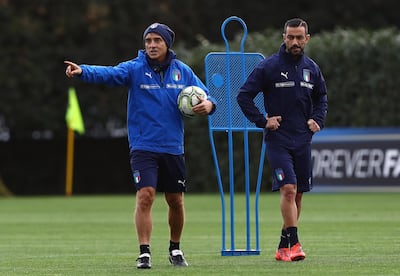
Atalanta, guided by the shrewd, brave Gian Piero Gasperini, simply do not recognise when they are beaten. They lost their first three group matches in the Champions League and still squeezed through. When they completed their marvellous year with a 5-0 thrashing of Milan, it seemed to beckon all the middleweights in Serie A to feel bold about a league whose established hierarchy has a brittle look. Atalanta, Cagliari and Parma are all in front of a jittery Napoli and the faded Milan in the table.
In Europe, though, there is little Italian muscle. In May, 10 years will have passed since a Serie A club last called itself champion of Europe - Inter - and, other than Juventus’ two finals, in 2015 and 2017, no Italian has reached either European Cup or a Europa League final in the decade.
The good news? A resurgent Azzurri, under Roberto Mancini. Italy, the giants who failed to qualify for the last World Cup, played 10 competitive internationals in 2019. They won all of them. In 2020, they will go to the Euros with the highest possible ambitions.






